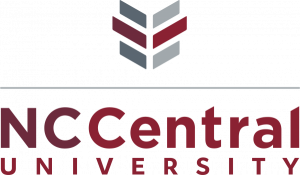
North Carolina Central University: America’s First Publicly-Supported Liberal Arts HBCU & Hayti Anchor
There are 85 science focused research parks in North America (72 – USA; 13 – Canada). There are no global science parks are primarily anchored by a Historically Black College or University. With the construction of DGEP’s equity education research and development park, NCCU would become the first in the world. This demographically different intellectual foundation – focused on equity – would have a dramatic impact on how racial equity is approached from an intellectual perspective. NCCU is the ideal institution to lead this effort.
NCCU is a historically black college, and minority serving institution, with nearly 9,000 students from across the United States and world. The demographic breakdown of NCCU is:
- 8,887 students (full and part-time)
- 6,434 full-time undergraduate
- 1,233 full-time graduate students
- 64% women
- 36% men
- 85% African American
- 6% White
- 6% Other
- 2% Hispanic
- 1% Asian
- NCCU students come from among the poorest families in the United States. The median family income of a student at NCCU is $37,700, which ranks 347th out of 377 selective public colleges, with 19% of the student body coming from the bottom 20% of the economic population (43rd percentile). Nearly 80% of NCCU students are from the bottom 60% of the economic population. The median income of NCCU graduates by the age of 34 is $32,300 – with the median for men at $29,800 and the median for women at $34,400 – the 54th percentile. There is only a 31% likelihood that a student at North Carolina Central University will move up two or more income quintiles.
- NCCU is the nation’s first public liberal arts institution for African American students.
- NCCU is 111 years old.
- NCCU is a member of the 17 University of North Carolina system campus
- NCCU is the second fastest growing institution in the UNC System by enrollment
- NCCU was honored as 2016 HBCU of the Year by HBCU Digest
- NCCU ranked No. 10 HBCU in America (out of 111 HBCUs) in 2019 by U.S. News & World Report
- NCCU ranked No. 1 HBCU in North Carolina by College Consensus in 2018
- NCCU in Top 20 for Awarding Minority Students Degrees
- NCCU offers bachelor’s degrees in nearly 100 fields
- NCCU has graduate degrees in more than 40 disciplines
- NCCU is governed by a thirteen-member Board of Trustees
- NCCU has an AACSB accredited School of Business
- Entrepreneurship is the fastest growing major in the NCCU School of Business and on campus
- NCCU has 7 schools (School of Business; School of Education; School of Law – one of only 6 in USA at a HBCU; School of Library & Information Sciences; School of Nursing; College of Behavioral & Social Sciences; College of Arts & Sciences)
- NCCU has two research institutes (Biomedical/Biotechnology Research Institute; Biomanufacturing Research Institute and Technology Enterprise)
- NCCU has an Angel Network, an intellectual property legal clinic and institute, entrepreneurial incubator space, Fabrication Lab in partnership with Massachusetts Institute of Technology, and a state-supported Small Business and Technology Development Center (SBTDC) program
- NCCU has a student faculty ratio of 16:1
- NCCU has an annual local economic impact of over $304 million and a $575 million regional economic impact
A significant number of the student body are first generation and low-income students. These diverse students would have unprecedented access to co-curricular and practicum educational opportunities and trainings at the DGEP Park. NCCU is located within the Historic Hayti district and its strongest remaining anchor institution. NCCU is one-half mile from the site of the equity park and on the same corridor and street. With a law school, business school, and School of Education, NCCU has a unique platform to integrate racial equity within curriculum and professional development that can scale across the United States and the world.